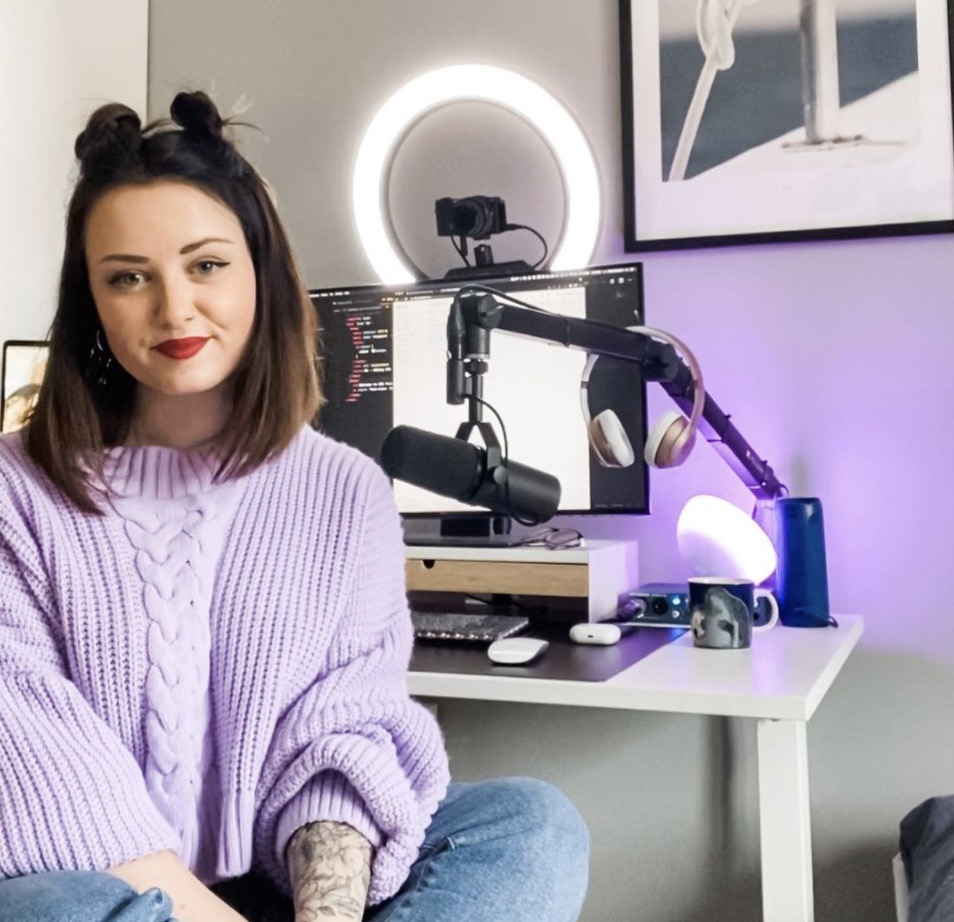Interview with Emma Bostian
Emma Bostian is an American Software Engineer working at Spotify in Stockholm, Sweden. She is a co-host of the Ladybug Podcast and teaches web development with LinkedIn Learning and Frontend Masters. Emma is also the author of De-Coding The Technical Interview Process.

What’s been your biggest learning from your side projects that you have been able to apply to your day to day?
My biggest learning from my side projects that I’ve applied to my daily routine is to commit to something (be that a meeting or a deliverable) and to deliver on that. If I tell the community “hey I’m going to release a new project on this date” I have to uphold my word to maintain trust. This is something I’ve adopted into not just my professional workflow at Spotify but also my personal life. I have a lot of social anxiety and meeting new people or sticking to meetups can make me spiral into anxiety. But the past year and a half I’ve pushed myself to step outside my comfort zone and follow through on plans I’ve made.
You’re originally from the US, and then lived in Germany for a few years before moving up to Sweden. Are there any cultural differences in the workplace that have stood out to you? Which ones did you notice straight away and which took a bit more time to notice?
There will always be cultural differences when working with team members from abroad. I’ve enjoyed studying cross-cultural communication and collaboration over the past year and a half. Whether we realize it or not, all cultures have set ways in which they collaborate and communicate, even how they experience time. I have a conference talk on this topic that you can check out.
One big communication difference I had in Germany is the fact that Germany is a high-context communication culture, meaning they expect the listener to “read the air” or listen to the message that is not explicitly spoken, but instead the one that is inferred.
As someone who grew up in the United States, a low-context communication culture, I have an expectation that what is spoken is explicit in nature and there is no hidden meaning. I prefer redundant communication that is backed up in writing. But what I consider to be “good communication” is not necessarily what another culture considers to be good communication so you have to adapt when working with team members from across the world.
When it comes to software development, is there anything you have changed your mind about? If so, what?
I’ve definitely stepped back from the idea that I need to stay up-to-date about every single technology. It’s too overwhelming to research and educate yourself about so many different topics. Instead I focus explicitly on the technologies I need to carry out my day job.
Either in your personal life or your professional life, what are you currently excited about and what are you looking forward to learning more about?
It sounds simple enough but I’m just excited to start diving into reading some of the new technology books I’ve recently purchased. Instead of focusing my energy and excitement on big life-changing events I’m trying to focus on the here and now. COVID has shifted my expectations (for example I was supposed to take a trip back to the U.S. to see family which was canceled) so I try not to place too much excitement on things that are far away. Instead I’m choosing to be happy about the smaller things in life.
What advice would you give to developers who are just starting out their careers?
Ensure that you’re still making time to get a good night’s sleep. If you’re sacrificing your sleep to learn new skills your learning is going to suffer in the long term. You need sleep to encode the information you’ve just learned into long-term memory. I highly recommend everyone check out the book Why We Sleep. It changed my perspective on learning.